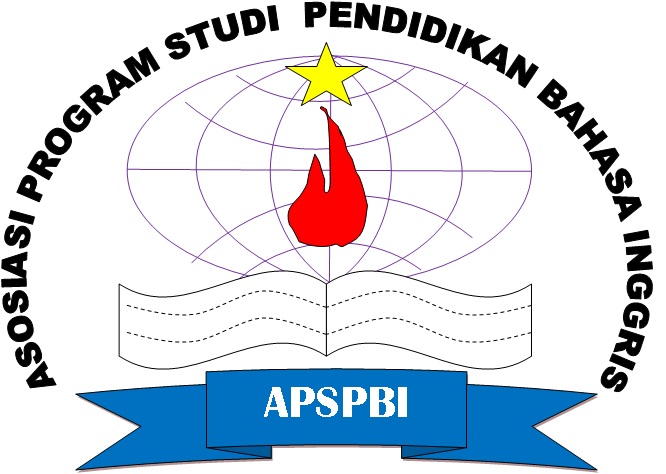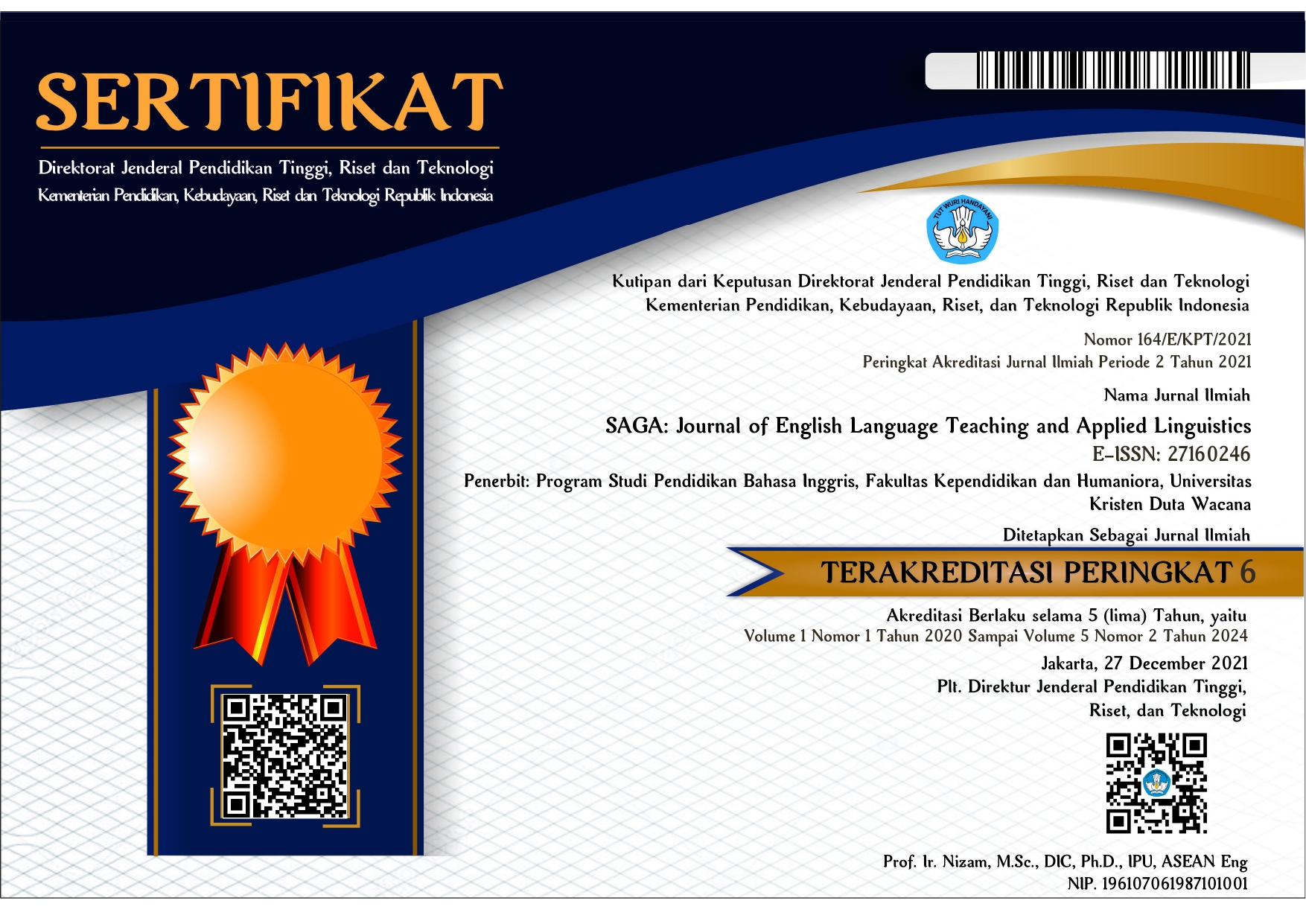Language Dilemmas in the EFL Class: Historical and Political Factors
DOI:
https://doi.org/10.21460/saga.2024.52.197Keywords:
EFL, language dilemmas, historical review, political factorAbstract
This research explains the complex and many-sided landscape of English language teaching (ELT) and how historical and political contexts influence it. By acknowledging the deep roots of ELT, this research highlights the importance of understanding the challenges and opportunities faced in teaching and learning English in various contexts. The authors conducted extensive library research to gather data and insights into the complexities of language learning in the EFL context, providing valuable solutions for addressing these challenges. Moreover, the article offers a historical review of the Dutch occupation of Indonesia and how it impacted education and English language teaching in the region. By exploring the historical context, the article highlights the significance of acknowledging the past and its influence on present-day ELT practices.
References
Alderson, C. (2009). Setting the scene. In C. Alderson (Ed.) The Politics of Language Education: Individuals and Institutions (pp. 8–44). Bristol: Multilingual Matters.
Ainley, P. (2011). Lost Generation? New strategies for youth and education. Educ. Fut. 3, 39–51.
Nasution, A. U., Debataraja, C. S., Ningsih, F. R., Nasution, U. A., & Daulay, S. H. The role of culture in enhancing students’ language acquisition: Teacher’s strategy. Culturalistics: Journal of Cultural, Literary, and Linguistic Studies, 7(2), 85-93, Dec. 2023. https://doi.org/10.14710/ca.v7i2.20031
Crookes, G. (2003) A Practicum in TESOL: Professional development through language teaching. Cambridge: CUP.
Corson, D. (1990). Language policy across the curriculum. Clevedon: Multilingual.
Dalimunthe, M., Daulay, S. H., & Purnama, S. W. (2022). English language teaching online class during Covid-19 era. Jurnal Basicedu, 6(5), 8819-8825.
Dardjowidjojo, S. (2003a). The role of English in Indonesia: A dilemma. In K.E. Sukamto (Ed.), Rampai Bahasa, Pendidikan, dan Budaya: Kumpulan Esai Soenjono Dardjowidjojo (pp. 41-50). Jakarta: Yayasan Obor Indonesia.
Dardjowidjojo, S. (2003b). English policies and their classroom impact in some ASEAN/Asian countries. In K.E. Sukamto (Ed.), Rampai Bahasa, Pendidikan, dan Budaya: Kumpulan Esai Soenjono Dardjowidjojo (pp. 63-82). Jakarta: Yayasan Obor Indonesia.
Dardjowidjojo, S. (2003d). English teaching: Where and how do we begin? In K.E. Sukamto (Ed.), Rampai Bahasa, Pendidikan, dan Budaya: Kumpulan Esai Soenjono Dardjowidjojo (pp. 29-40). Jakarta: Yayasan Obor Indonesia.
Daulay, S. H., Daulay, N. K., Daulay, A. H., Reflina, R., Maysarah, S., & Khairunnisa, D. (2021). Online learning problems in the Covid-19 pandemic for English education students. AL-ISHLAH: Jurnal Pendidikan, 13(3), 2373-2380.
Fadjar, A. M. (2003). Act of the Republic of Indonesia number 20, year 2003 on national education system.
Gregory, O. D. (1964). Three projects in English in Indonesia. Djakarta: The Ford Foundation.
Hall, Graham. (2011). Exploring English language teaching language in action. London, New York.
Huda, N. (2000). Kedudukan dan fungsi bahasa asing (The position and function of foreign languages). In H. Alwi dan D. Sugono, Politik Bahasa: Risalah Seminar Politik Bahasa (Language Politics: Procedings of the Seminar on Language Politics) (pp. 59-78). Jakarta: Pusat Bahasa dan Departemen Pendidikan Nasional
Johnston, B. (2003). Values in English language teaching. A Wide-Ranging Discussion of Values and Morality within ELT. London: Routledge.
Johnston, B. (2003). Values in English language teaching. London: Routledge.
Kennedy, C. (2010). Learning English in a global context. In S. Hunston and D. Oakey (Eds.), Introducing Applied Linguistics: Concepts and Skills (pp. 87–93). London: Routledge.
Komaria, O. (1998). The history of English teaching in Indonesia (Unpublished thesis submitted for the degree of M.A. Applied Linguistics). Atma Jaya Catholic University, Jakarta.
Kurniawati, L. A., & Kristianti, V. (2022). Freedom to learn-independent campus and pre-service teachers proffesional identity development. Jurnal Pendidikan: Teori, Penelitian, dan Pengembangan, 7(8), 290. https://doi.org/10.17977/jptpp.v7i7.15424
Lauder, A. (2008). The status and function of English in Indonesia: A review of key factors. Makara: Sosial Humaniora.
Nasution, U. A., & Daulay, S. H. (2023). Language disorder in speaking English at Islamic Boarding School: Psycholinguistic analysis. TELL US: Teaching, English, Linguistics, Literature Usage. https://ejournal.upgrisba.ac.id/index.php/tell-us/issue/view/388
Nasution, E. (2019). Problems of education in Indonesia. Ushuluddin and Da'wah Faculty of IAIN Ambon.
May, S. (2013). Language and minority rights: Ethnicity, nationalism and the politics of language. Routledge
Pennycook, A. (1990). Critical pedagogy and second language education. System 18(3), 303–14.
Rao, P. S. (2019). The role of English as a global language. Research Journal of English, 4(1), 65–79. www.rjoe.org.in
Stern, H. (1983). Fundamental concepts of language teaching. Oxford: OUP
Suherdi, D. (2012). Rekonstruksi pendidikan bahasa. Celtics Press
Sumardi. (2023). The analysis of the primary school education with Dutch as the medium of instruction during the Dutch colonial government of year 1900-1920. International Journal of Research Publication and Reviews, 4(5), 6230–6238. https://doi.org/10.55248/gengpi.4.523.42969
Tabalujan, B. S. (2002). The Indonesian legal system: An overview. Law Library Resource Exchange (LLRX). Retrieved November 26, 2006, from: http://www.llrx.com/features/indonesia.htm.
Tilaar, H. A. R. (1995). Lima puluh tahun pembangunan pendidikan nasional 1945–1995. Jakarta: Grasindo.
Tollefson, J. (1995). Power and inequality in language education. Cambridge: CUP.
Van der Veur, P. & Lian, T. (1969). Education and social change in colonial Indonesia. Papers in International Studies, Southeast Asia Series, No 12. Athens, Ohio.
Vermunt, J. D. (1996). Metacognitive, cognitive and affective aspects of learning styles and strategies: A phenomenographic analysis. Higher Educ (pp. 25–50). doi: 10.1007/BF00129106
















